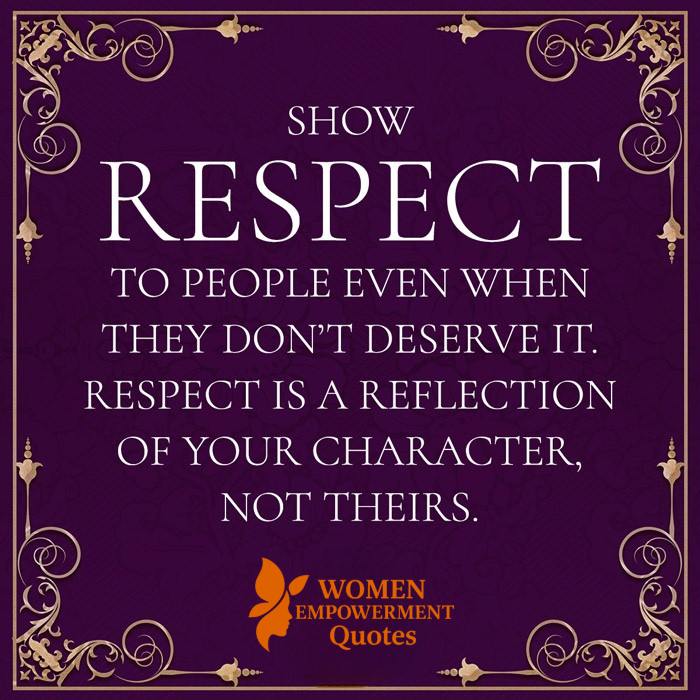
In a world where reactions often mirror behavior, choosing to respond with respect—especially when it’s not deserved—is a rare and powerful act. It’s easy to be kind to those who treat us well. But our true character is revealed in how we treat those who don’t.
When someone is rude or dismissive, the natural urge might be to retaliate or walk away with bitterness. But in doing so, we allow their negativity to shape our actions. Respecting others, even when they fall short of deserving it, is not about condoning bad behavior—it’s about staying grounded in our own values. It’s a reflection of who we are, not who they are.
By responding with respect, we rise above the cycle of pettiness and hostility. We become examples of emotional maturity, refusing to let others pull us down to their level. And sometimes, a simple act of respect can soften a hardened heart. When someone expects disdain but receives dignity instead, it can spark unexpected self-reflection and even transformation.
This doesn’t mean staying silent in the face of mistreatment. Respect does not require submission. We can and should set firm boundaries, but we can do so with grace—preserving both our self-worth and the humanity of the other person.
Leading by example in this way is a quiet revolution. It sends a powerful message: that decency still matters, even in a world that often forgets. When we choose integrity over impulse, when we act with honor in difficult moments, we light a path for others to follow. We may never know who we’ve impacted, but kindness always leaves a mark.
Supporting Quotes to Reflect On:
-
“Respect is one of the greatest expressions of love.” – Miguel Ángel Ruiz
-
“When we treat people as they could be, we help them become what they were meant to be.” – Adapted from Thomas S. Monson
-
“By respecting others, we are not saying they are right; we are showing we are strong.” – Unknown
Let your respect not depend on their worthiness, but on your values. That’s how real change begins—within, and then outward.